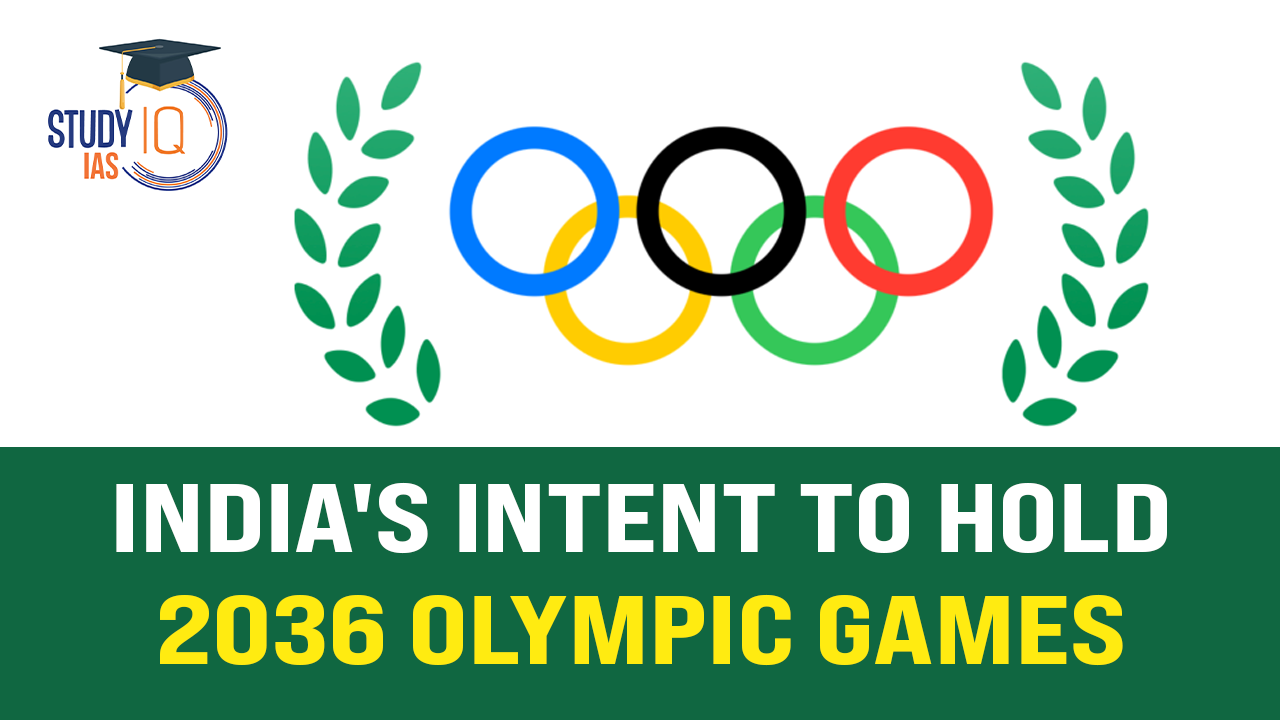Table of Contents
History Leading to the Modern Olympic Games
Early Inspirations and Proposals
- Panagiotis Soutsos: A Greek poet in the early 1830s, used his literary work to inspire national pride and proposed the revival of the Olympic Games to coincide with the anniversary of the Greek War of Independence on March 25.
- His famous poem “Dialogues of the Dead” in 1833 reflects this sentiment.
Financial Backing and Initial Games
- Evangelos Zappas: Influenced by Soutsos’ ideas, Zappas, a wealthy veteran of the Greek War of Independence, proposed in 1856 to fund an Olympic event in Greece.
- His efforts materialised with the first such event in 1859 in Athens, featuring traditional ancient Greek sports like running, discus, and wrestling.
- Zappas continued to fund the Games, which were also held in 1870, 1875, and 1888, culminating in the construction of the Panathenaic Stadium.
Influence and Events in Britain
- William Penny Brookes: Inspired by Zappas’ efforts, Brookes started the “Annual Wenlock Olympic Games” in 1859 in Wenlock, England.
- These evolved into the first “National Olympic Games” held in London in 1866.
- Brookes also envisioned an international Olympic competition, which remained limited to nationals until his proposal in 1880 to internationalise the games.
Emergence of Pierre de Coubertin and the International Olympics
- Internationalisation: Pierre de Coubertin was influenced by Brookes after witnessing the Wenlock games and later proposed the revival of the Olympic Games at an international scale.
- His proposal led to the “Congress for the Revival of the Olympic Games” in Paris in 1894, which set the stage for the first International Olympic Games.
- First Modern Olympics in 1896: The first modern Olympics were held in Athens under the International Olympic Committee’s aegis, drawing athletes from 14 nations and proving to be a significant international sports meet.
What is the process leading up to host city selections?
- Informal Exchange: Initial discussions occur between the IOC, the NOC, and the interested city/region.
- Continuous Dialogue: If discussions progress positively, the city enters a non-committal phase where it receives tailored support from the IOC to refine its Olympic project.
- Feasibility Study: The IOC conducts a comprehensive feasibility study to assess project viability and strategic guidance. This includes independent evaluations on human rights and sustainability.
- Targeted Dialogue: If deemed favourable, the Future Host Commission (FHC) may recommend a Targeted Dialogue for a specific Games edition. This involves extensive consultations about venue costs, public opinion, and environmental impacts.
- Host Elections: The IOC Executive Board proposes Preferred Hosts for election by IOC Session members. Finalists present their projects followed by a secret ballot vote. Upon election, hosts sign an Olympic Host Contract.
| Facts |
|
Key Considerations for Host Selection
When evaluating potential hosts, the IOC considers various factors:
- Geopolitical and Socio-Economic Factors: The overall political climate and economic conditions of the host region.
- Vision and Venue Masterplan: The clarity and sustainability of the proposed masterplan for hosting events.
- Alignment with Development Plans: How well the project fits into existing regional and national development strategies.
- Sustainability and Legacy Impacts: The long-term benefits for the local community and environment.
- Public Support: The level of political and public backing for hosting the Games.
- Infrastructure Readiness: Existing sports facilities, accommodation capacity, transport infrastructure, safety measures, and security arrangements.
Benefits of Hosting
Hosting the Olympic Games can bring numerous advantages:
- Community Development: Improved infrastructure and community engagement leading to social benefits that extend beyond the event itself.
- Economic Opportunities: Boosting local economies through tourism and job creation associated with hosting preparations.
- Global Exposure: Increased visibility on an international stage can enhance a city’s profile as a tourist destination.
Early Indian Participation
- 1920 Antwerp Olympics: India’s first Olympic team, an informal selection of four track athletes and two wrestlers, participated in the 1920 Olympics, facilitated by Dorabji Tata.
- Dorabji Tata’s Contribution: Known as the pioneer of the Indian Olympic movement, Tata organised selection trials in Poona and Bombay in 1920 and later became the president of the All India Olympic Committee formed in 1924.
- The 1924 Paris Olympics: Formalizing India’s Participation
- Formal Selection: The athletes for the 1924 Paris Olympics were chosen after the “All India Olympic Meet” at Delhi’s Roshanara Club grounds, which was India’s first national meet.
- Team Composition: The squad included eight track-and-field athletes and seven tennis players (5 male and 2 female), marking the first time Indian women competed in the Olympics.
- Evolution of Indian Women in the Olympics
- Initial Steps: The participation of Indian women in the 1924 Olympics set a precedent for future involvement.
- Significant Achievements: Notable progress was seen with Karnam Malleswari’s bronze in weightlifting at the 2000 Sydney Olympics, highlighting the strides made by Indian sportswomen.
| Indian Athletes Participated In Olympic Games |
|
India’s Inspiration To Host Olympic games
- India’s Olympic journey gained momentum after hosting the 2010 Commonwealth Games in New Delhi.
- This success prompted the Union Government to reform sports associations with the National Sports Development Code, aiming to improve sports administration.
- In 2017, the Khelo India Scheme was introduced to strengthen the sports ecosystem, with a focus on building infrastructure, nurturing talent, promoting sports, and supporting sports academies at the grassroots level.
- Through the Khelo India Rising Talent Identification program, the scheme identifies and supports talented young athletes aged 9 to 18.
- A committee selects these promising athletes, who receive government support to develop their skills.
- In fact, 28 athletes from Khelo India competed in the Paris Olympics 2024.
- Prime Minister Narendra Modi pushed for hosting major multi-discipline events, including the 2030 Youth Olympic Games and publicly declared India’s intention to host the 2036 Olympics during the opening ceremony of the 141st IOC session and in the 2024 Independence Day speech.
Strategic Planning for the Olympic Bid
- Sports as a State Subject: Under the Indian Constitution, sports fall under the State List (Entry 33), meaning individual states are responsible for developing sports infrastructure.
- Tamil Nadu’s Leadership: Tamil Nadu leads in sports infrastructure, with nearly 390 Olympic-standard facilities and plans for a Global Sports City near Chennai.
- The state has also hosted international beach sports events, highlighting its advanced capabilities.
- Other States with Infrastructure: Delhi and Odisha also have significant sports infrastructure, with 161 and 153 Olympic-standard facilities, respectively.
- Odisha’s Bhubaneswar has hosted major events like the FIH Odisha Hockey Men’s World Cup 2023, showcasing its world-class facilities.
- Cost-Efficiency and Collaboration: The largest expense in hosting the Olympics is building infrastructure.
- India can reduce costs by leveraging existing facilities in states like Tamil Nadu, Delhi, and Odisha, similar to Paris’ approach for the 2024 Olympics.
- Need for National Consensus: The success of India’s Olympic bid will depend on a unified national effort, with leadership from the Union government.
- A multi-stakeholder committee should be formed to represent various states and plan the bid, ensuring it aligns with FHC criteria and showcases India’s full potential.


 GPS Spoofing and Its Impact in India: A ...
GPS Spoofing and Its Impact in India: A ...
 Amrit Gyaan Kosh Portal: A Comprehensive...
Amrit Gyaan Kosh Portal: A Comprehensive...
 UpLink Initiative: Launched by World Eco...
UpLink Initiative: Launched by World Eco...





















